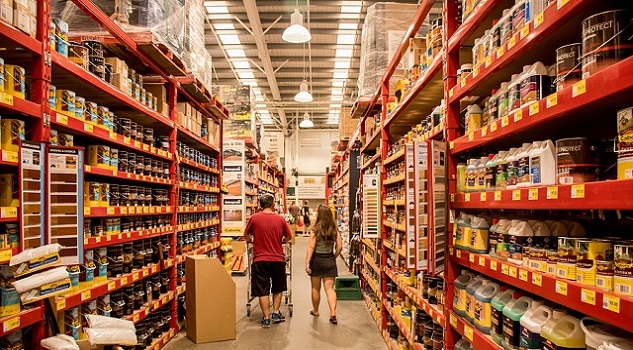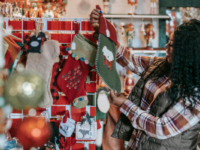A video showing a customer refusing to wear a mask at a Bunnings store in metropolitan Melbourne over the weekend highlights the importance of training staff on the ins and outs of the new government policy, retailers and industry experts say.
In the video, the customer, who has been dubbed “Bunnings Karen” on social media, tells Bunnings staff members that they don’t have the right to ask her to wear a mask, or to question her reason for not wearing one, and threatens to sue them.
One of the staff members responds that wearing a mask is a condition of entry to Bunnings stores, but does not further engage with the customer. Later, police were involved, according to media reports.
Bunnings has said it is proud of the way its team members handled the incident.
“The customer’s behaviour towards our team was completely unacceptable and we’re proud of the way our team calmly and professionally handled the situation,” Deb Poole, Bunnings’ chief operating officer, told Inside Retail.
According to Poole, Bunnings has a well-established process in place for handling people who refuse to wear a mask in stores where they are required, and has trained all team members on what to do.
“We won’t tolerate abuse against our team members and we have security at all metro Melbourne and Mitchell Shire stores as support. Our team will also alert the police should they encounter any difficulties,” she said.
Dominique Lamb, CEO of the National Retail Association, praised the interaction as a textbook example of how to respond to customers who refuse to wear a mask.
“The employees in this video handle this situation superbly and the police were swiftly involved,” Lamb told Inside Retail.
Only Victoria Police have the authority to enforce the mask mandate in metropolitan Melbourne and Mitchell Shire, which took effect last Thursday, July 23. They can issue $200 on-the-spot fines to people who refuse to cover their faces if they don’t have a lawful reason not to.
Some of these reasons include having a relevant medical condition; being deaf or hard of hearing; consuming food, drink or medication; engaging in physical activity where they are out of breath; smoking or vaping; or emergencies. Infants and children under the age of 12 also don’t need to cover their faces.
But what happens when someone tries to enter a retail store in Melbourne or Mitchell Shire without a face covering?
Some retailers are not stopping people, citing the fact that there are legitimate reasons why someone might not be wearing a mask, but others say mask-wearing is important to protect the health and safety of everyone in the store, including other customers and staff. And if they operate on private property, like Bunnings, they can legally make it a condition of entry to their stores.
In these cases, retail workers are often the ones tasked with asking customers to comply with the rules, so it’s important they are trained on what to do, according to Lamb.
“Similar to most retail crime issues, it is not ideal to have employees enforcing laws relating to masks, assault or theft. However they are often the workers who are confronted first,” she said.
“As a result we have seen retailers invest in significant training around this issue and also to put in place protocols that include security and calling police in order to enforce the relevant laws.”
But Josh Cullinan, secretary of the Retail and Fast Food Workers Union, believes employers are responsible for monitoring and enforcing safe work practices and said staff should not be required to perform them.
“We do demand that employers not put front line staff in harm’s way – such as by requiring them to perform mask enforcement, check bags of shoppers or confront offenders,” Cullinan told Inside Retail.
“At this time, having senior managers at entries or competent security guards is simply [a] cost of doing business.”
Retailers in shopping centres may benefit from the security provided by centre management, which could alleviate the pressure on workers on the shop floor. The Shopping Centre Council of Australia has provided guidance to all its members on the new requirement, executive director Angus Nardi said.
“Generally speaking, if someone enters a centre without a face covering, they may be asked if there is a valid reason for not wearing one and depending on the circumstance provided with one, directed to where one can be purchased, asked to leave the centre or if Victoria Police are present, there is a risk of them being issued with a fine,” Nardi told Inside Retail.
Nardi underlined the fact that the vast majority of people in Victoria are complying with the mask mandate. Even when face coverings were only recommended and not officially required, he said 85 to 90 per cent of people were wearing masks at major centres.
Last weekend, he said, only a handful of people entered shopping centres in Melbourne and Mitchell Shire without face masks. Some of them had lawful reasons not to wear a face mask, and others were either given a mask or told where they could purchase one.
This story first appeared on our sister publication Inside Retail
















